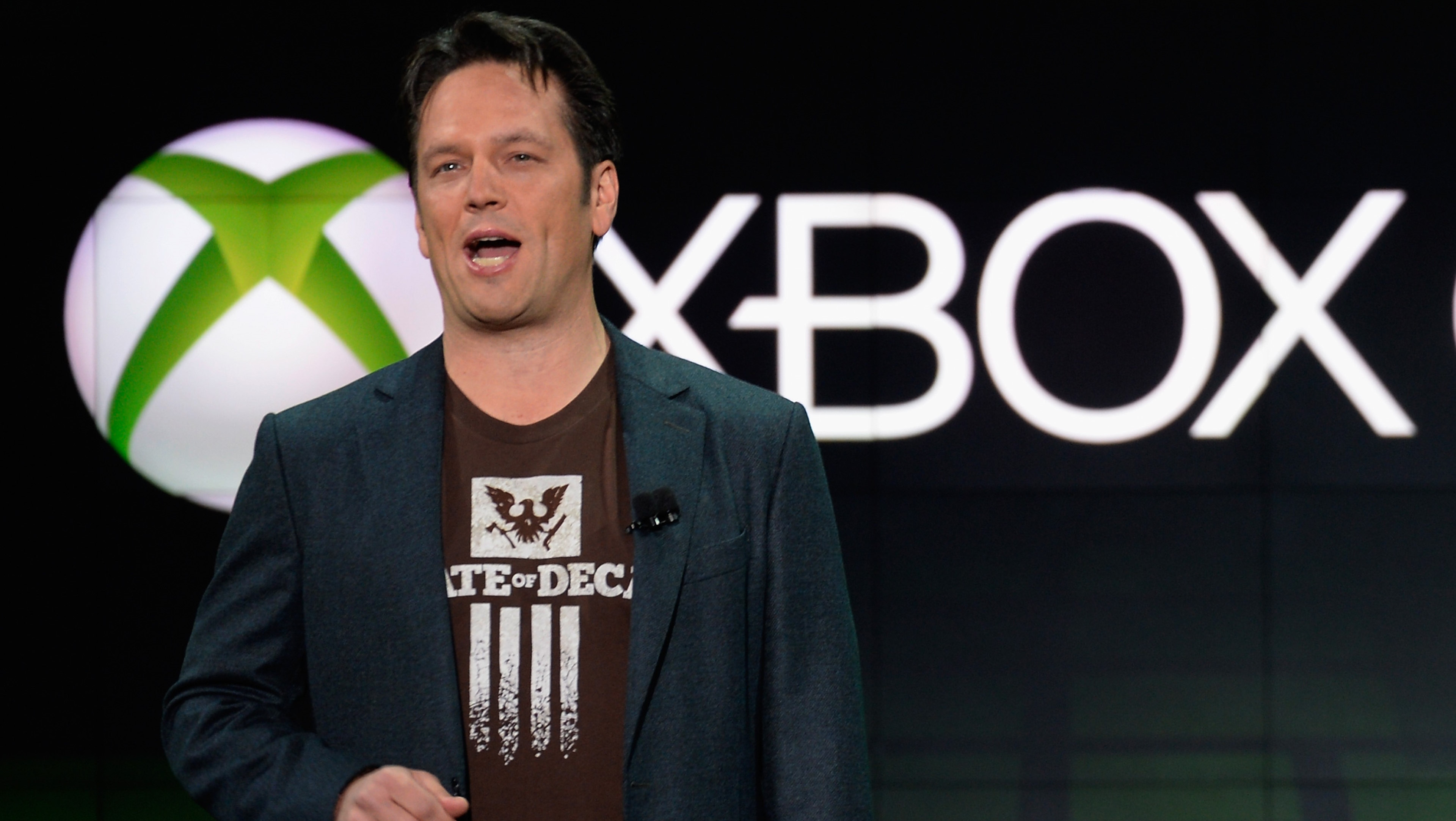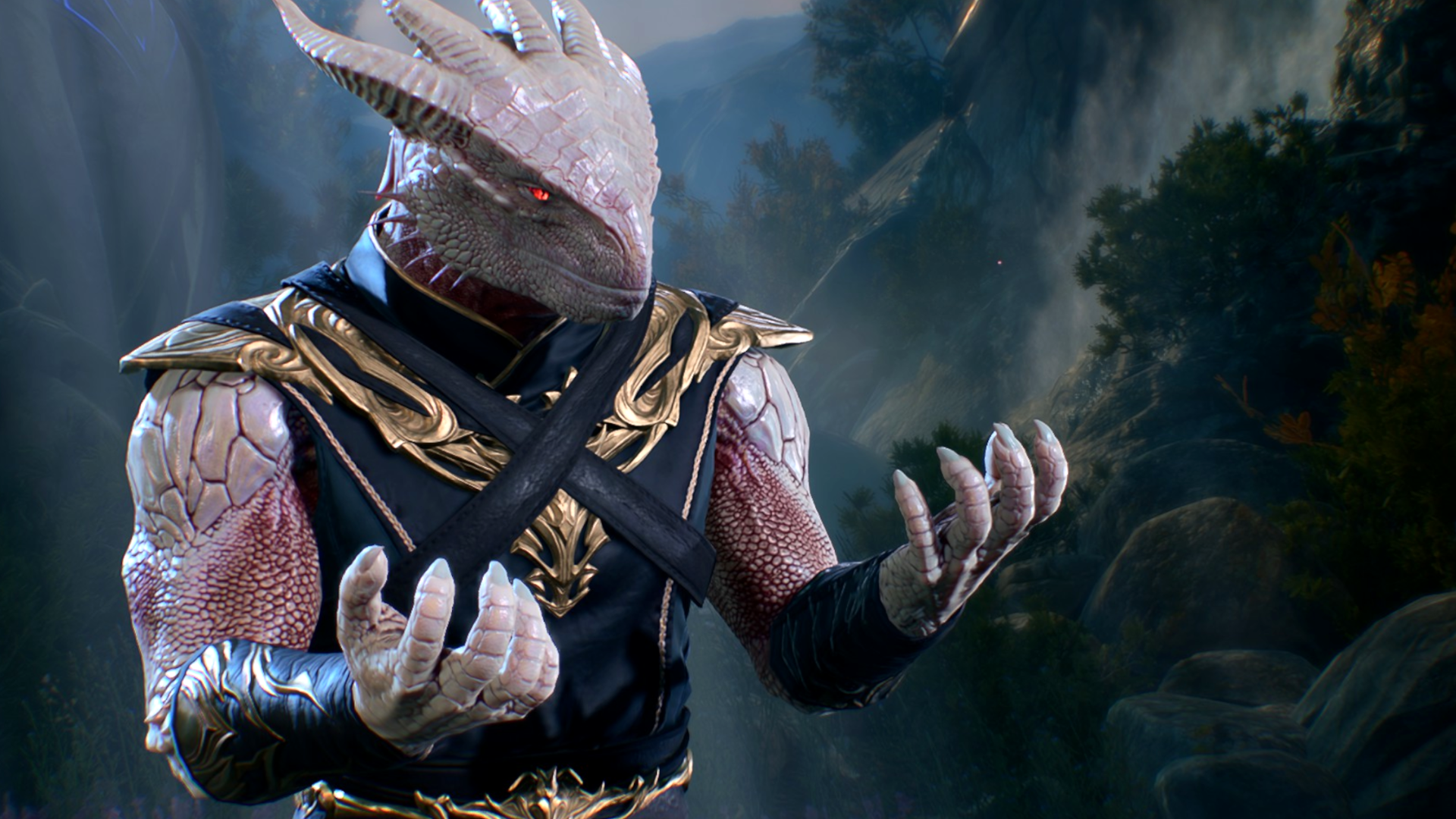Xbox bet that Game Pass would be the future of gaming, and we're all paying for it
There's triage, and then there's this.

Keep up to date with the most important stories and the best deals, as picked by the PC Gamer team.
You are now subscribed
Your newsletter sign-up was successful
Want to add more newsletters?

Every Friday
GamesRadar+
Your weekly update on everything you could ever want to know about the games you already love, games we know you're going to love in the near future, and tales from the communities that surround them.

Every Thursday
GTA 6 O'clock
Our special GTA 6 newsletter, with breaking news, insider info, and rumor analysis from the award-winning GTA 6 O'clock experts.

Every Friday
Knowledge
From the creators of Edge: A weekly videogame industry newsletter with analysis from expert writers, guidance from professionals, and insight into what's on the horizon.

Every Thursday
The Setup
Hardware nerds unite, sign up to our free tech newsletter for a weekly digest of the hottest new tech, the latest gadgets on the test bench, and much more.

Every Wednesday
Switch 2 Spotlight
Sign up to our new Switch 2 newsletter, where we bring you the latest talking points on Nintendo's new console each week, bring you up to date on the news, and recommend what games to play.

Every Saturday
The Watchlist
Subscribe for a weekly digest of the movie and TV news that matters, direct to your inbox. From first-look trailers, interviews, reviews and explainers, we've got you covered.

Once a month
SFX
Get sneak previews, exclusive competitions and details of special events each month!
By all appearances, 2025 was going to be the year Xbox turned things around. Doom: The Dark Ages, no less than three new games from Obsidian Entertainment, Indiana Jones on PS5, another post-acquisition Call of Duty, and the absolute whopper of The Elder Scrolls 4: Oblivion Remastered. After two years of mass layoffs and studio closures, it seemed like things had calmed down.
Nope: Last week's layoffs of 9,100 people company-wide at Microsoft, with a chunk of those at Xbox, joined the layoffs of 6,000 employees in May. With the 10,000 laid off at the beginning of 2023 and 2,500 after the Activision Blizzard acquisition went through last year, that's 27,600 lives upended by Microsoft in two and a half years.
Some obvious questions arise from this destructiveness. Why did Microsoft gobble up so many studios only to cancel their apparently promising games, like the Blizzard survival game that employees were hyped about, or the ZeniMax MMO that even Microsoft Gaming head Phil Spencer himself reportedly liked? And why should the employees of a company making billions in profit have to be in constant fear that they're next on the chopping block? Microsoft CEO Satya Nadella's executive compensation rose 63% in 2024 to $79 million.
Spencer's justification is that "tough decisions" like these are why Microsoft is profitable in the first place, but the company seems to be on track to "tough decision" its entire gaming workforce into oblivion. And Xbox's mercurial nature has ramifications even outside its walls. Gaming legends John and Brenda Romero have had to lay off most of their staff and scramble for an alternate publisher after Microsoft pulled funding for their FPS project, which was apparently quite far along in development.
After so much talk about its commitment to gaming, it feels clear now that Xbox is just a side project for the mammoth corporation, which would prefer to bet billions on AI so it doesn't lose clients like the Israeli military (however many employees protest its involvement in the massacre of Gazans, which has also landed it on the BDS embargo list).
But that doesn't entirely explain why Microsoft is cancelling games and laying off dev teams at the same time as it's boasting about having "more players, games, and gaming hours than ever before." Our best hypothesis for that apparent contradiction: Microsoft's acquisitions were all about feeding Game Pass, and as successful as the subscription service has been, it hasn't turned out to be the gold mine it hoped for.
According to discovery documents during the FTC's challenge to the Activision Blizzard merger, Microsoft had a goal of over 100 million Game Pass subscribers by 2030. Game Pass currently boasts north of 35 million subscribers after eight years of existence, with five more to go until the 2030 deadline. If that initial goal still stands, we can probably expect many more mass layoffs in the future.
Keep up to date with the most important stories and the best deals, as picked by the PC Gamer team.
This Is An Xbox
Having handily lost the last two console generations to Sony and Nintendo, Xbox has become associated with services more than games. Xbox hedged its bet in the console hardware space in 2017 with the introduction of Game Pass, its subscription game service, and possibly the closest thing we have to the much-ballyhooed "Netflix of Games."
Game Pass is undeniably a convenient, economical way for players to access a large catalogue of games, and the service saw rapid adoption. Intuitively, though, it's another force (like Steam sales) driving down the perceived value of games, and Game Pass uniquely harms their retail success—would you rather buy Avowed for $70, or get it through PC Game Pass for $12/month?
Arkane founder Raphaël Colantonio had harsh words for Microsoft's all-in bet on Game Pass. "I think Gamepass is an unsustainable model that has been increasingly damaging the industry for a decade, subsidized by [Microsoft's] 'infinite money,'" Colantonio wrote. "But at some point reality has to hit. I don't think GP can co-exist with other models, they'll either kill everyone else, or give up."

2025 games: Upcoming releases
Best PC games: All-time favorites
Free PC games: Freebie fest
Best FPS games: Finest gunplay
Best RPGs: Grand adventures
Best co-op games: Better together
The math works if Microsoft keeps getting new Game Pass subscribers, who are enticed to the service with the constant addition of new games. And from the outside, it does appear to be working—Windows Central reported in April that PC Game Pass revenue was up 45%—but Microsoft apparently wants more. Something is clearly very wrong if success continues to result in these mass layoffs, studio closures, and project cancellations.
What's especially worrying is that this should have been a particularly great year for the service, the likes it may not see again for some time, buoyed as it was by the first post-merger Call of Duty on Game Pass. I have my doubts that even an Infinity Ward entry will cause a similar stir, The Elder Scrolls 6 ain't walking through that door anytime soon, and Xbox has committed to starving itself of fuel for the Game Pass engine with every layoff and studio closure. The enduring legacy of Xbox's explosive late '10s and early '20s expansion, buying up so many beloved studios, appears to be a massive injection of misery into gaming as an industry and hobby.
While Microsoft's new "This is an Xbox" campaign highlights the hardware-agnostic nature of its services and seems another indication of a pivot away from traditional console manufacturing, Xbox does not appear to be fully exiting the hardware business. But the rumors are that its next generation console will be a PC in all but name, running a specialized version of Windows—the ROG Ally X appears to be a first stab at the concept.
This strikes me as a stage-managed retreat into making Potemkin consoles that are just PCs with walled garden software, the logical conclusion to the past ten years of consoles transforming into worse PCs. I don't see products like the Ally X making a significant dent in the well-established market of pre-built and handheld PCs. Just like with Games for Windows Live, Microsoft is at least five years too late and playing catch-up.
It's hard to imagine where we go from here, but Xbox is still leveraged across dozens of studios, and if it keeps firing its devs and shutting them down, I foresee a negative feedback loop where Game Pass will have fewer new releases to keep people subscribed between CoDs and Elder Scrolls, while its corresponding slowed growth will feed into yet more layoffs.
Ted has been thinking about PC games and bothering anyone who would listen with his thoughts on them ever since he booted up his sister's copy of Neverwinter Nights on the family computer. He is obsessed with all things CRPG and CRPG-adjacent, but has also covered esports, modding, and rare game collecting. When he's not playing or writing about games, you can find Ted lifting weights on his back porch. You can follow Ted on Bluesky.
You must confirm your public display name before commenting
Please logout and then login again, you will then be prompted to enter your display name.


